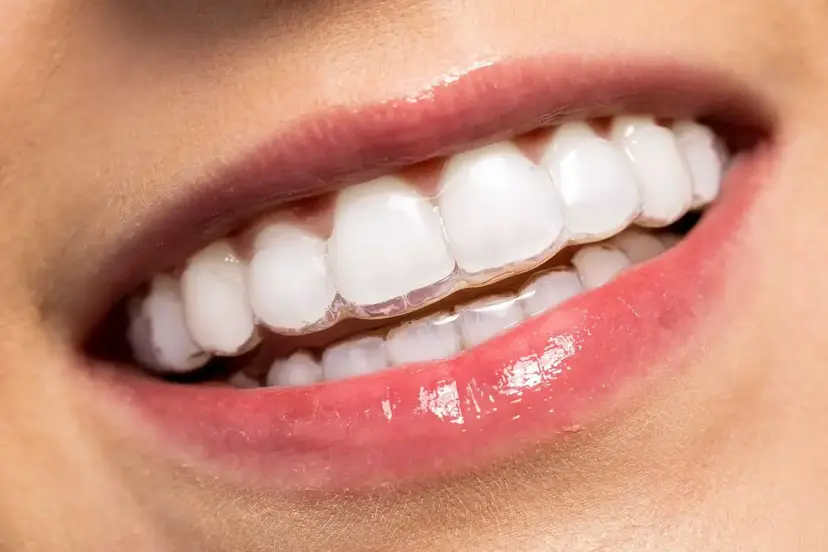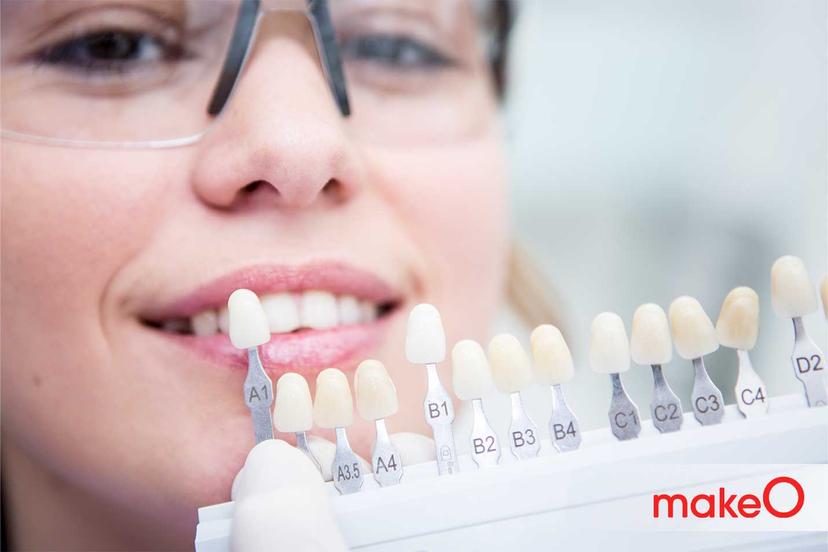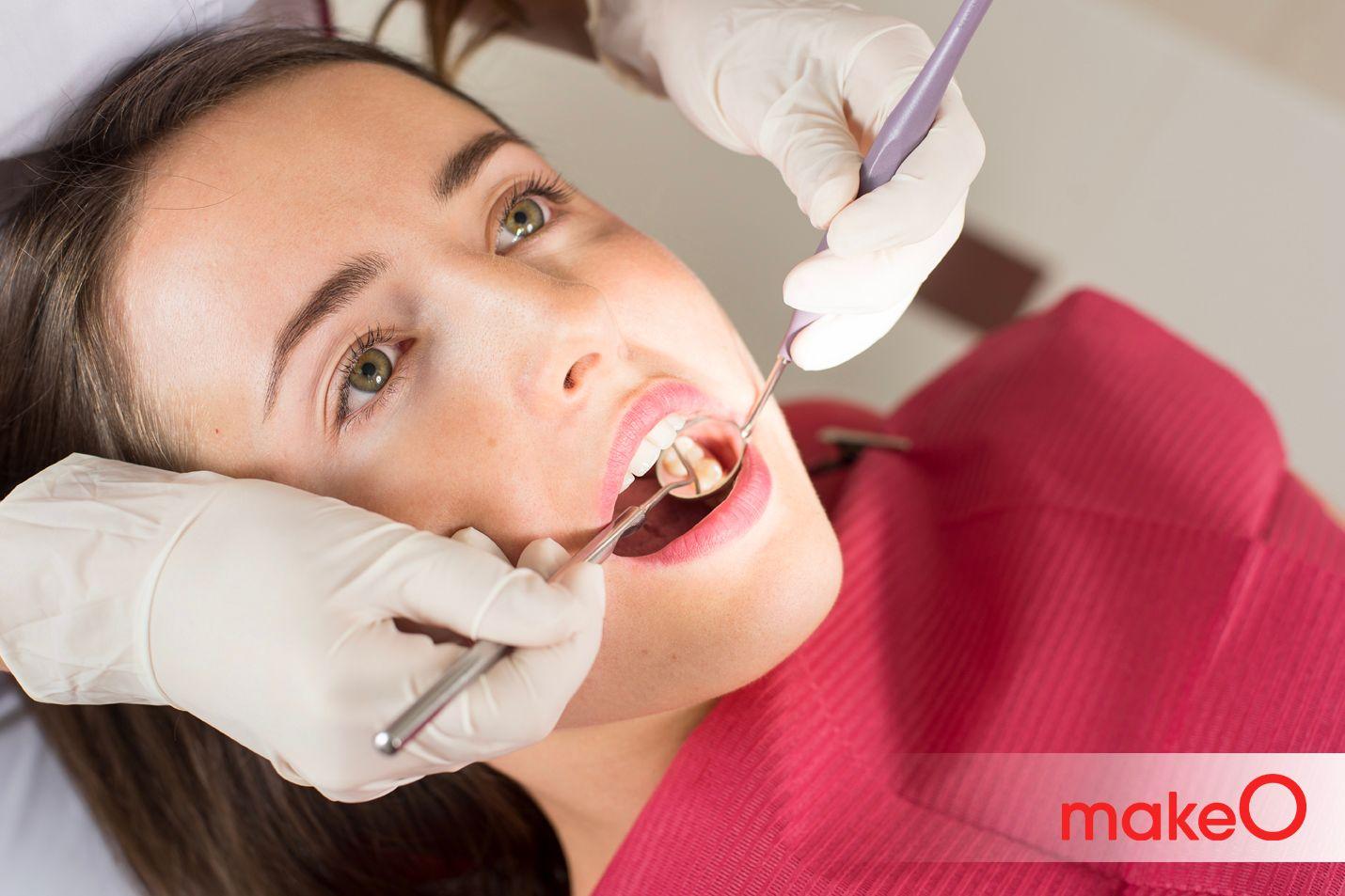MakeO blog
Denture stomatitis might sound like a tongue-twister, but for many, it's an issue that deserves attention. In simple terms, oral stomatitis is a fungal infection caused by candida, a kind of fungus. Candida can be naturally found in the mouth in lower quantities but when there’s an imbalance, it may grow rapidly and cause an infection. This infection is also called Thrush and people who wear dentures are prone to this infection.
Let’s explore what this infection looks like, its symptoms and causes, denture stomatitis treatment options and preventative measures in this article.
What Does Denture-Related Stomatitis Look Like?
So what does this infection look like? It manifests into redness, inflammation, irritation and swelling. Most of these can irritate the palate or the roof of the mouth. In some cases, you might notice small, red pinpoint spots on the palate. Thrush can look like light-coloured patches all over your mouth, tongue, and palate. If left untreated, these signs can progress, leading to discomfort and potential complications.
Denture Stomatitis Signs and Symptoms
Causes
To prevent an oral issue, it is important to know what causes it in the first place. For oral stomatitis, some of the main causes include:
- Prolonged wearing of dentures
- Age (people above 65 years are more susceptible to this infection)
- Poor oral hygiene
- Excessive consumption of sugar and carbs
- Frequent smoking or use of tobacco
- Alcohol consumption
- Nutrient deficiencies
- Usage of immunosuppressant or particular antibiotics
Symptoms
Identifying denture-related stomatitis involves paying attention to subtle changes in your oral health. Look out for symptoms such as:
- Redness and Swelling: You may first notice redness and inflammation around your tongue and palate. The swelling could be more around the area where one wears dentures too.
- Burning Sensation: A persistent, uncomfortable burning or tingling sensation in different areas inside the mouth.
- Unpleasant Taste or Odour: You may feel changes in taste or experience persistent bad breath. This can be a telling sign that something is amiss.
- Difficulty Wearing Dentures: Discomfort or pain while wearing dentures could be a sign of stomatitis.
Denture Stomatitis Treatment
Denture Stomatitis treatment involves a two-pronged approach one is to address the signs and symptoms and the second is to prevent their recurrence. Here is everything you need to know about denture stomatitis management
- Antifungal Medications: Your dentist may prescribe antifungal medications to combat the overgrowth of Candida. These are generally topical creams or oral medications. It’s important to follow instructions and only use them as prescribed to heal your infection correctly.
- Proper Denture Care: If your infection crops up due to your use of dentures, thoroughly clean them daily to remove any accumulated plaque or debris. Soaking them in an antifungal solution can help eliminate any remaining microbes.
- Oral Hygiene: Maintain good oral hygiene by brushing your gums, tongue, and palate regularly, even if you wear dentures. Use a fluoride mouthwash and a water flosser to remove any remaining bacteria or food particles after brushing. Oral hygiene is extremely important in keeping infections of all kinds at bay and helps control the growth of harmful microorganisms.
- Denture Adjustment: If your dentures are ill-fitting, consult your dentist for adjustments or replacements. A snug and comfortable fit reduces the risk of irritation and infection.
Preventive Measures
Preventing denture stomatitis is the key to a healthy oral environment. Consider these preventive measures:
- Regular Dental Check-ups: Schedule routine dental check-ups and cleanings to keep your teeth healthy and catch the signs of an infection earlier.
- Maintain Oral Hygiene: Even with dentures, maintaining oral hygiene is crucial. Brush your gums, tongue, and palate daily to reduce the risk of infections. To boost your oral hygiene, you can look to include oral care products from makeO toothsi. A leading oral care brand, we offer electric toothbrushes, water flossers and more modern and exceptional tools to help you protect your teeth from infections such as stomatitis.
- Clean Dentures: Making sure that your dentures are thoroughly cleaned every day is very important to prevent infections and other issues. Always soak them in an antifungal solution as recommended by your dentist before wearing them.
- Avoid Smoking: We all know that smoking weakens and hampers lungs, oral health and the immune system. It increases the risk of developing denture-related stomatitis and other infections. Quitting smoking can have positive effects not only for your overall health but your oral health too.
Conclusion
Denture stomatitis might be a common oral issue, but with proper care and awareness, it's entirely manageable. The key is to prioritise oral health, clean your dentures, and go for regular dental check-ups, which can go a long way in preventing and treating this condition. Furthermore, with brands like makeO toothsi, you can add smart oral care appliances such as water flossers, electronic toothbrushes and more, into your routine and safeguard your health too.
FAQs
What is the first line of treatment for denture stomatitis?
The first thing your dentist may prescribe you for denture stomatitis is an antifungal medication. This could be a topical cream or a pill. Ensure that you have the prescribed medication at the right time and in the correct manner to accelerate your recovery.
What is Type 2 stomatitis in dentures?
Type 2 stomatitis, also known as denture-related stomatitis, refers to inflammation of the oral mucosa caused by wearing dentures. It is caused by the overgrowth of a yeast called candida and may cause symptoms like redness, swelling, and light patches on the tongue and palate.
What is the best treatment for stomatitis?
The best treatment and denture stomatitis management should revolve around antifungal medications, proper denture care, and maintaining good oral hygiene. However, if you notice any of the symptoms, immediately visit a doctor instead of self-medicating and treating the infection at home. Only a professional dentist can prescribe you the best treatment plan for your stomatitis.
related categories
Related articles

Types of Braces: Removable vs Fixed Braces, Which is Right For You?

This Diwali, Smile Bright With makeO Teeth Whitening Kit

Dr. Pravin Shetty: Pioneer in Lingual Orthodontics & Innovative Smile Solutions
How do I Know I’m the Right Candidate for makeO toothsi Teeth Aligners?

